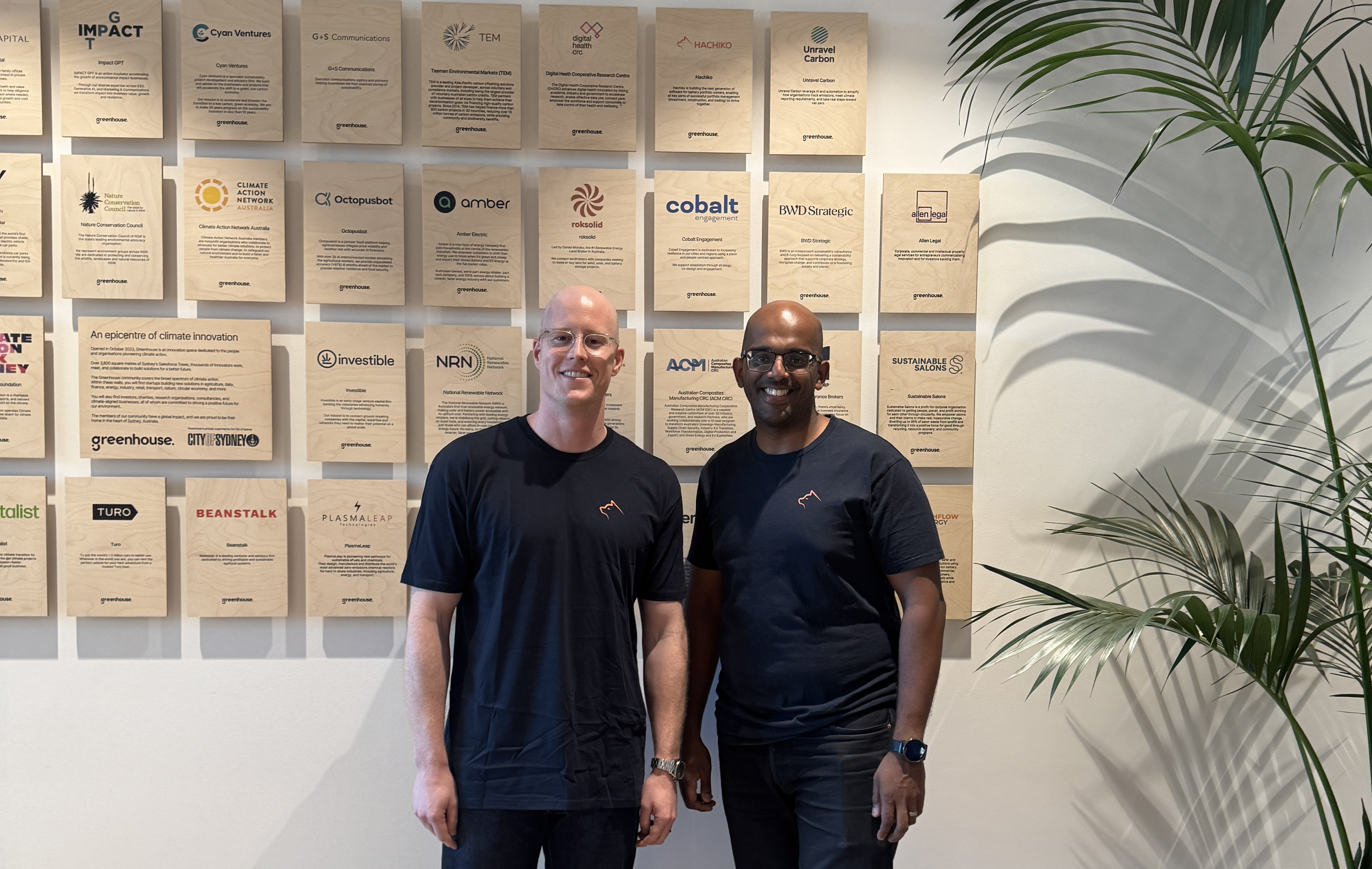
As a founder, you are often the first product manager in a startup. With a deep understanding of your customer needs and a vision for an amazing solution, you will be the driving force in bringing your product to life.
When it comes to replacing yourself in this crucial role, you will need to consider when is the right time and who is the right person to help drive your business forward.
While not an exhaustive guide, this serves as a framework to help you think strategically about your hiring decision and offer practical suggestions in finding the right product manager.
When should I hire a product manager?
The key signal that you should hire a dedicated product resource is when you become a bottleneck for your engineering team.

While your team may not tell you this directly, when an engineering team can't move quickly it can look and sound like:
- A growing backlog of unreleased features because the team are waiting on you to sign these off
- Complaints from customers and your sales team that the product is not delivering on promises - features are delayed, scoped down or aren't doing what was expected because the team did not have clarity on the requirements, specifications were delayed or downstream implications within the product weren't considered
- Engineering teams are blocked because the priority of tickets are not clear and they aren't getting decisions in a timely manner
- Engineering or design teams are repeating themselves when getting your feedback for critical decisions because you don't have the time to be across the details
- It seems like there is a lot of work happening but nothing being delivered because the priority changes in the middle of a sprint and features are left unfinished
If this sounds familiar, don't panic. It's completely normal as you are wearing so many different hats and these issues will occur to varying degrees in businesses of all sizes.
The first thing to do is sit down with your head of engineering or CTO and get their views on whether the team is blocked and where they need support. Depending on the specific roadblocks for the team, you might consider options to redistribute the product management tasks within the existing team to help them perform better or decide that a dedicated product resource will be required.

Key questions to consider
How experienced are you at building products and working with engineers?
Generally, if you are non-technical and inexperienced in building products, you should think about bringing on board a dedicated product resource sooner rather than later. This will allow you to focus on growing your business while allowing the engineering team to move quickly.
Are there other areas of the business that need your focus?
If you have co-founders to support you in other areas of the business, you may not need to turn your attention away from product development right now.
However, at some point you may realise that your top priority is fundraising, business development, closing customers, hiring or growing other functions in your business.
While you will still be responsible for the product vision, it's likely that the day-to-day tasks of product management can be handed over to allow you to focus on the growing demands across your business.
Are you mentally ready to let someone else control the development of your product?
Replacing yourself as the product manager means handing over responsibility for the day-to-day tasks which can include customer discovery, product development and ongoing support of the product.
While you will (and should!) still be responsible for the product vision, you will be able to build a team around you that allows you to think ahead about where your product and business needs to grow.
What is the size of your engineering team?
As a general rule of thumb, for a product with front-end and back-end you will need a team of 1 product manager : 1 designer: 7 engineers (including Developers, DevOps and QAs).

What type of product manager should I hire?
If you've decided now is the right time to bring on board a product manager, that's great! However, product management job titles can be ambiguous and mean different things at different companies. Rather than focusing on a job title, a good place to start is by thinking about the product management tasks this person will be taking on and the type of skills they will need to be successful in your company.
Key questions to consider
Will you still be responsible for some aspects of product management? If so, what are the type of tasks that you will be carving out for the new role?
Go back to your earlier discussion with your engineering lead to determine where the key bottlenecks are and refer to the product manager skill matrix below to understand what strengths your new hire will need to have.
Will this hire be a stop-gap to add capacity to your team in the short term or do you envisage this person playing a role in the medium to long term as you grow your business?
If you are looking for a stop-gap, you may look to hire a junior whose main responsibility is unblocking your development team. This may look like a 'product owner', 'business analyst' or 'junior product manager' role where they are focused on:
- requirements definition,
- backlog management,
- documentation, and
- project managing the release schedule.
In this case, you will still be responsible for setting product roadmaps, priorities and customer discovery activities. This is ideal if the roadmap and priorities are stable and execution is the main focus. However, for startups still searching for product-market fit, this is unlikely to be the case and may still lead to bottlenecks as your input and feedback is required for tactical decisions.
Alternatively, you may be looking to hire an experienced product manager who will take over the tactical and some strategic aspects of product management. This individual will likely bring their own views on product strategy and may challenge you on the roadmap priorities, go to market strategy and existing processes. In this case, the individual will be responsible for:
- setting the product roadmap,
- collaborating with the engineering team to deliver the product, including setting priorities, negotiating development estimates and making trade-offs, and
- working cross-functionally to support go to market initiatives.
Longer term, this individual will build up a team of product managers around them and set the processes and operational rhythm of the product management function. This is ideal if you are looking for someone to take on primary responsibility for product management, accelerate your team's performance and allow you to focus on growing your business.
How much support will you be able to provide?
Do you need someone who can hit the ground running, work collaboratively with the engineering team and execute on projects with little guidance or do you have capacity to bring on board and mentor a person with less work experience to develop both the soft and hard skills required to succeed as a product manager?
Does the product manager need to have domain or technical expertise?
Where your product serves a highly specialised market, for example tax preparation software, you may need to find an individual who has domain expertise gained from working in the industry (e.g. a tax accountant) or an individual who has built software for a similar audience to understand the nuances of your customer. While this knowledge can be acquired, it is a much steeper learning curve for a product manager without this experience.
If you have a highly technical product, your product manager may require deep technical expertise to work effectively with your engineers. If so, you may want to look for software engineers who want to move into product management.
What is your budget for this role?
Product managers are in high-demand and as a result, the salaries for product managers has increased in recent years. For founders in the APAC region, the Think & Grow 2021/2022 salary guide is a great reference point for comparable salaries based on the stage of your startup.

What soft skills are important in a product manager?
Operating systems
When interviewing candidates, it's good to understand where they excel to hire the person with the right mindset for the stage of your business. Individuals will tend to lean towards one or two of these core ‘operating systems’
- Visionaries: These are the people who can see around corners and enjoy thinking big. They can see how their product will change the lives of their customers and can rally people around this vision. Most often this will be a founder's superpower!
- Executors: Executors are generalists who will get their hands dirty and get things done. They are able to join the dots and understand both the big picture vision and what is needed to get there. They will have no issues stepping in and doing the work or creating systems and processes to help the team operate more efficiently.
- Specialists: These individuals hold deep functional knowledge or expertise in a particular field and will optimise the results in their area of expertise. For example, they could have a specialisation in growth, mobile, platform or technical areas.
Generally, executors are well placed to succeed as the first product management hire in a startup. Using their ability to move between big picture thinking and detailed execution, these are the people who can get sh!t done. As your team grows, you may want to consider hiring specialists for their deep expertise and finally, a visionary product leader who can help expand on your product vision and refresh the product as it moves through the product lifecycle.
Product management specific skills
Neal Cabbage’s framework is a good way to start thinking about the type of skills you need in your first product manager and serve as a guide as you build out your team.

A product manager is unlikely to have all of these skill sets. It is more likely that they will naturally gravitate towards certain areas and build their strengths in these verticals.
Stack rank your 'must haves'
When thinking about the ideal candidate, it's helpful to clearly define your priorities.
Strategic or tactical?
Do you need this person to be more 'heads up' looking towards the future and strategic direction of the product or 'heads down' working on tactical day to day product management tasks to keep the function humming
External or internal?
In a 'day in the life', would this person primarily work with customers and external stakeholders or engineers and other internal stakeholders?
Stack rank your preferences for the remaining 5 core verticals above based on the tasks that you would like the individual to take on
- Users
- Market
- Core product
- Business
- Technical
Prioritising these skillsets before writing a JD or interview candidates will help you review candidate CVs quickly and evaluate candidates on a consistent basis to find the person who will be the best fit for your business.

The product manager interview process
The interview process for a product manager generally includes:
- Initial screening by recruitment manager to get alignment on background, motivations and salary bracket
- Interview with founder
- Optional: Case study interview
- It's good practice to keep this short (not more than 1 -2 hours to prepare and then a half hour presentation) and focused to allow the candidate to demonstrate how they work and their skillset.
- Optional: Interview with Head of Engineering and/or Head of Sales
- If your product manager will be expected to work cross-functionally, it is important for them to meet their potential future colleagues and for your team members to provide input into the hiring process.
- If the role is likely to be 'heads down', internal focussed, the Head of Engineering is probably the best person to provide additional feedback. Conversely, if it is a 'heads up', external focussed role - go with the Head of Sales
Some sample interview questions
We've assembled a handy guide with some sample product management interview questions, what you're looking for, and potential strong signals to look out for your interviewees response.
- In your view, what is the role of a product manager?
- What achievements or outcomes are you most proud of as a product manager?
- Tell me about a time when you disagreed with engineers and designers on your team. What did you do?
- Tell me about your favourite (digital or non-digital) product
- Follow up: What would you do if you were the product manager for this product?
- Can you talk me through your prioritisation process?
- Follow up: Tell me about a time you had to make a difficult trade-off and what was the outcome?
Get the full interview guide.





